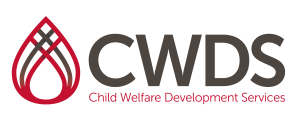CWDS Curriculum
Addiction and the Family eLearning
Level: Advanced Practice – Lineworker, Supervisor
Credits: 1
Intended Audience: Experienced or newly hired child welfare service personnel working directly with clients.
Intended Objectives:
- Define addiction and codependency
- Understand the importance of involving children and family members in the recovery effort
- Identify the effects of codependence on family members
- Identify the effects of addiction on children in foster care
- Increase the participant’s knowledge of a planned change effort
Topics Include:
- Definitions of commonly used terms
- Problem of addiction
- Four primary diagnostic characteristics of addiction
- Characteristics of the addicted/traumatized family system
- Children in addicted families
- The “Myth of Recovery”
- Culturally appropriate interventions
- Child welfare response to addicted families
- Resources for professionals
CalSWEC Competencies Addressed:
1.1 Student demonstrates respect, fairness, and cultural competence in assessing, working with, and making service decisions regarding clients of diverse backgrounds.
1.2 Student demonstrates the ability to conduct an ethically and culturally competent assessment of a child and family and to develop an effective intervention plan.
2.2 Student is able to critically evaluate the relevance of commonly utilized assessment criteria and intervention models in terms of their usefulness with diverse ethnic and cultural populations.
3.8 Student demonstrates the ability to respectfully relate to, engage, and assess family members from a strengths-based “person in environment” perspective, and to develop a case plan on this assessment.
4.3 Student works collaboratively with biological families, foster families, and kin networks, involving them in assessment and planning and helping them access services and develop coping strategies.
5.5 Student demonstrates understanding of how the strengths perspective and empowerment approaches can positively influence growth, development, and behavior change.
Posted In:eLearning



